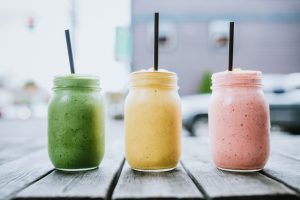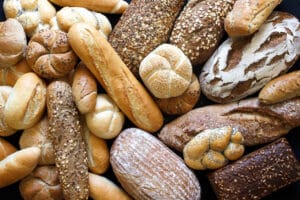You’ve been chilling out at home and practicing social distancing for weeks, lounging in your comfy yoga pants. Admittedly, this stretchy and forgiving fabric has become your staple attire for working from home, grocery trips, dog walking and binge watching Netflix. Life has been pretty cozy until you discovered during a Zoom meeting that you’ll soon be heading back to work. You panic! What do you have to show for weeks of countless trips to the fridge, curbside take-out and late night food binges? Zippers that don’t zip! Stress weight gain is a thing. The reality of staring into a closet full of clothes that no longer fit has set in, how are you going to bounce back from the “quarantine 15,” those formidable pounds that silently crept up beneath your elastic waistband.

Don’t beat yourself up! Self-badgering won’t melt away the pounds or make squeezing into your pre shelter-at-home apparel any easier. While you may be lured by popular diets or gimmicks that promise a quick fix, be aware that many often lead to short-term results with long-term consequences. The following safe and sustainable strategies can give you just the boost you need to rid yourself of the stress weight gain from the “quarantine 15” that will have you healthier than ever. In time you’ll be zipping up and flaunting your favorite skinny jeans again!
Master Your Environment
Make healthful eating the default by cleaning out and organizing your kitchen. Begin by tossing out the packaged and processed convenience foods that got you into trouble in the first place, and replace them with a variety of wholesome foods that bear a single ingredient, like fresh and frozen fruits and veggies, beans, potatoes and whole grains. Give wholesome foods prime real estate in your fridge by placing them in glass containers positioned front and center so that they are easily visible and accessible.
Wake Up to Water
We lose water through body fluids simply by breathing while we sleep, and we can find ourselves hungrier than usual when dehydrated.

Fill your water bottle and rehydrate soon after waking. Drink plenty of water throughout the day, especially between meals, to bounce back and resist the tendency to snack when you may actually be thirsty instead.
Focus on Calorie Density
Eating foods that contain low calories and high nutrients per volume can expedite weight loss. Low-calorie natural foods are usually higher in water and fiber, which means that you’ll get to eat larger volumes of food and fill up without breaking the calorie bank. Choose foods that do not contain added sugars, salt or oils to cut calories, and bump up the flavor with your favorite vinegars, citrus, and fresh and dried herbs and spices.
Plan & Prep Fiber-Fueled Meals
Don’t leave healthy eating to chance. If you want to lose the weight gain brought on by stress, you’ve got to do the work on the front end so that wholesome weight-loss favorable foods are easily accessible at meal time. Fiber is the secret weapon for weight loss. It fills the belly and gives the sensation of satiety without overloading you with calories. Stock your fridge with colorful fruits and veggies, batch cook beans, sweet potatoes, and intact grains, and combine them to create satiating Buddha bowls that you can eat at home or take to work.
Prepare the following day’s meals so that the food decisions have already been made and you will be less tempted to reach for convenient, heavily processed foods.
Avoid Snacking Between Meals
Much of our snacking stems from a lifetime of poor habits, and we may frequently find ourselves reaching hand to mouth without even feeling hungry. Treat your kitchen like a restaurant with designated operating hours. Consider it officially closed and off limits after your meals. Most of the stress weight gain is the result of snacking so beware!
Move It To Bounce Back and Lose It
If you’ve been sedentary while sheltering at home, walking is the easiest and most convenient way to increase activity and burn calories. Lace up your sneakers and head outside to walk at a pace that requires moderate effort for conversation without struggling to speak. When you’re ready to increase the intensity, add inclines, pump your arms, or carry light hand weights.
Eat an Early Dinner
Finish dinner a minimum of 3 hours before going to bed and floss and brush your teeth so you’re less tempted to eat again before bed. Avoid activities that trigger night-time eating. If watching Netflix tempts you to nibble, change your routine temporarily to help bounce back and break the eating cue and read a book, or take a walk instead.
Get Sufficient Sleep
Lack of restorative sleep creates an imbalance with our hunger and satiety hormones, ghrelin and leptin. When we are sleep-deprived, our hunger can spiral out of control, and we often feel like a bottomless pit, unable to fill up no matter how much we eat. Designate a realistic bedtime that you will stick to and aim for 7-8 hours of sleep each night. Set your phone alarm for one hour before going to bed and engage in mind and body calming practices, (think warm shower, reading, meditation, prayer) to prepare you for sleep.

With repetition, consistency and patience, turning these strategies into daily practices will empower you with the tools you’ll need to transform from quarantine 15 to healthy and lean!
Want more on nutrition? Check out Leslie Stein on IG @lesliestein.lifestyle and on Twitter @absforeverfit
Need help getting the weight off? Take a look at Prime Women’s PLATE program. Now is a great time to join with the launch of our new app. Read more here.







